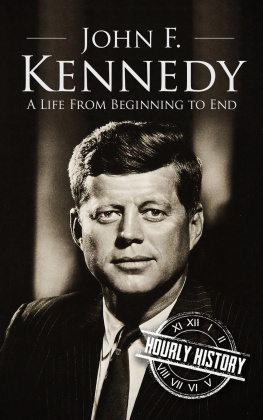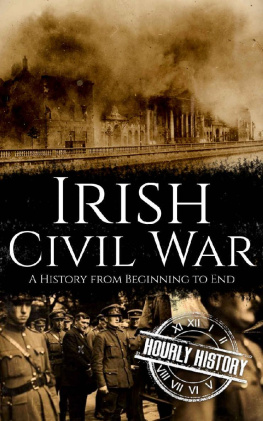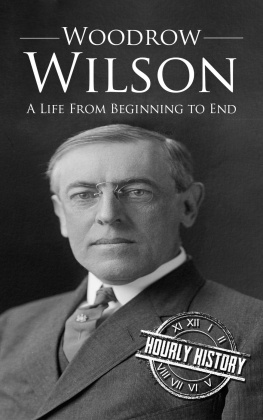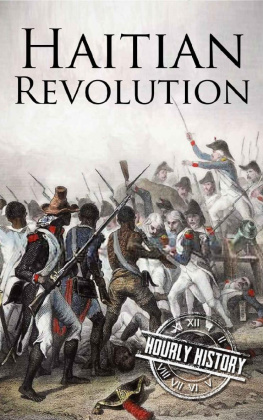Introduction
I n the fall of 1862, the entire world had its attention on what General Robert E. Lee was doing. Over the summer hed proven that the Confederacy had some serious chops, and now, hard on the heels of victory, he was about to make a daring move - one that would take the Southern war from the defensive to the offensive.
The next steps would be crucial. Victory would mean recognition for the Confederacy from the European nations. Should that happen, then there was a distinct possibility that Great Britain and France would join the war on their side. Such an alliance would change the face of the United States of America forever.
Antietam, though, would change all of that. What transpired in those fields and along that creek would become a tragedy that would be remembered for years to come.
Dunker Church.
The Cornfield.
The West Woods.
Bloody Lane.
Burnside Bridge.
More than the individual people, the places would become immortalized, with a memory of wholesale slaughter attached to each. Its hard to think about individuals when the dead and wounded number in the thousands.
There were some individuals who stood out, some in infamy, others more heroically. Had it not been for the actions of two particular men, General Robert E. Lee of the Confederacy and Major General George McClellan of the Union Army, the entire war might have ended differently.
Lets start out with General Lee, at the end of a very successful summer.
Maryland, My Maryland...
The present seems to be the most propitious time since the commencement of the war for the Confederate Army to enter Maryland.
Gen. Robert E. Lee
They were the dirtiest men I ever saw, a most ragged, lean, and hungry set of wolves. Yet there was a dash about them that the northern men lacked.
Witness to the Army of Virginias march into Maryland.
I n September of 1862, fresh from the victory at Second Bull Run, General Robert E. Lee thought to take his army into Maryland, bringing the fight into the enemys lands.
It was a good time of year for an invasion. Being late September, a fresh harvest would be coming in. What better plan than to deplete the enemys resources rather than your own?
It was a strange invasion. While the troops were starving, the orders were to take nothing. General Lee not only forbade his troops from looting or pillaging, but they were ordered to pay for any provisions they took right on down to the wood from one farmers fence that was taken for campfire fuel. Of course, they were paying in Confederate currency, but the thought behind it was good.
Moreover, the Southern army was tired and hungry from their battles at Bull Run. Still, they were in high spirits. The Confederacy had just won both recent engagements, and Lee now was taking them within fifty miles of Washington.
They entered Maryland feeling that victory would soon be theirs. They expected a heros welcome. After all, they had come to free the state from Northern domination. They arrived singing and enjoyed the confidence that comes from knowing that men would flock to their cause by the thousands.
It did not take too many miles of marching to find out otherwise;
the welcome they got was downright chilly.
The people of Maryland (at least in this region) were staunch Union supporters. With more than a year having gone by since the start of the war, most of the men of Maryland who were supporters of the South were already soldiers somewhere, having long since joined. Moreover, while Marylanders were farmers like themselves, the actual Maryland farm was quite different from the Southern counterpart. Here there were no slaves working vast plantations. Maryland was made up of family farms, with very few individuals owning slaves at all. So while rumors might have told of a large number of Southern sympathizers just waiting to join the Confederacy, the reality was that the Southerners were just plain not welcome in most parts of the states, and in fact, Lee lost more troops than he gained when he crossed the border.
The initial optimism of the army died away with each weary mile into enemy territory. There was still plenty of enthusiasm to focus on the task at hand. Lees troops had successfully invaded the North - now it only remained to pick a site for the battle to come.
As tempting a target as Washington might have been, the road between Antietam and the Union capital was choked with wounded Northern soldiers in retreat, and the fortification around Washington was tough. Also, the number of troops stationed there would have been twice the size force that Lee commanded. Also, Lee had to keep in mind that a ship stood on standby to whisk President Lincoln and his Cabinet to safety should a Washington invasion occur. All these factors made Washington a less than desirable choice.
Lee was not the only Confederate general in enemy territory.
The Confederate forces in Kentucky, under Major General Edmund Kirby Smith, also had had a successful battle at Richmond, and was now poised outside of Cincinnati. Truly it had to feel as if Southern domination was near.
There were others thinking along the same lines.
Lee was well aware of the scrutiny of England at this time. The Confederacy had sought to create a treaty with Great Britain all the way back at the beginning of the war when theyd sought their assistance when the North had blockaded Southern shipping. Thus far, England had shown hesitancy in becoming involved, instead opting for a position of neutrality. This wait and see attitude had continued over the next year, as those who decided such things watched to see how the South fared in their struggles before committing to their side in anything.
However, could support be gained off of such a questionable act?
Lees orders thus far had been to defend the borders of the Confederacy, and not to invade enemy territory. Lee justified his action by pointing out that this was simply a foray into the north, with no intention of keeping any possible land gained in such an invasion. Regardless, Lee was there without permission and hoping that a bold move would not only strike a blow straight into the heart of the Union but would also gain that international support that was so important to winning the war.
This was the situation as Lee marched his army into Maryland. Singing no less.
It was not an impressive sight. The men had little to eat but dried corn and green apples. They were feeling hollowed out according to one privates memoirs. Their clothes were torn and disheveled, most of them had lice, and thousands of the Southern troops had no boots. Marching in rags, dirty, with bare feet and gaunt from hunger, fifteen hundred men deserted the army on the march. Some from the conditions, some from being in the service without any possibility of leave, some because theyd signed on to defend the Confederacy, not to invade.
A point needs to be made here: while they looked a wreck, these were a tough force of fighting men. These kind of brutal conditions have a way of whittling out the weak, so as much as they came in with nothing, looking like an army of beggars more than an invading force, they would fight fiercely when the time came, with every confidence that they could win this thing.











